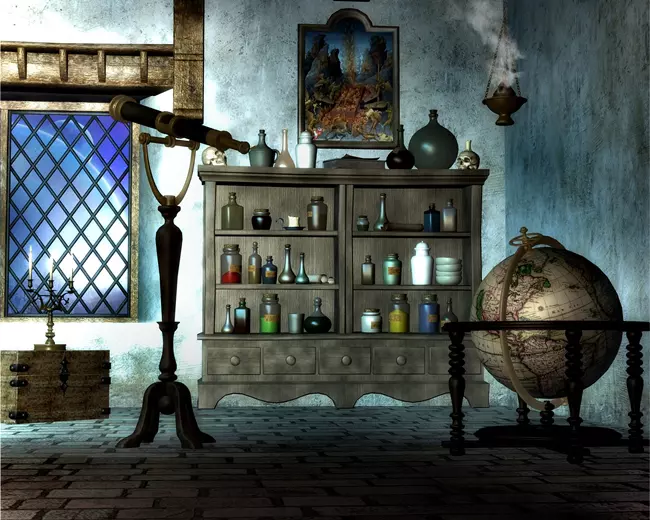The history of astrology from the beginnings
Nowadays, numerous articles about astrology and horoscopes are published, and we can find many daily horoscopes online, as well as some horoscopes where we can read about the following day - such as this one. But have you ever wondered just how ancient the origins of astrology are?
Pictures: pixabay.com / loulou Nash; modified: Richárd Seres-Nagy; Licenc: Pixabay License (Free for commercial use; No attribution required); License link: https://pixabay.com/service/license/; Link: https://pixabay.com/illustrations/alchemy-wizards-magic-witchcraft-2146679/
Magic has always been a part of the lives of humans, and along with this, our ancestors believed that some themes in the nature had more importance than others. That’s why there are strong archetypes that are common in many cultures - such as fire, which immediately makes us associate to mystical and magical qualities, as well as warmth and human relationships. The stars, the Sun and the Moon also had special meaning in the lives of people even centuries ago.
Even in prehistoric times, people wanted to know more about the future - they were seemingly all alone in this huge, sometimes cruel and scary world, and they did feel the need to find answers to their struggles, and also, they wanted to have something to hold on to, perhaps a hint about what might happen in the future. Because otherwise, they felt really vulnerable and helpless in a world where hunger, diseases, injuries and predators all threatened them with pain and death. Knowing more about the future - or at least believing that the future can be learned - made people feel stronger, as they thought that they can prepare for the threats of the future, thus they could feel that they had the power to change, and in some ways, control their own fate.
Yet, not everything that’s associated with magic and mystery can be categorized as astrology, at least not in a way we normally refer to as astrology. Because, still in a broader sense, astrology is when people try to find out more about themselves, their future and others by learning about how the planets and other celestial objects might influence their lives. Yet, in the early days, astrology and astronomy (as a science) were basically merged with each other, as people were trying to make predictions about the seasons, the weather and other changes in the nature by understanding how the ever-returning changes in the sky are associated with these changes.
There are some evidence of such human activity dating back to some 25,000 years ago, when people used bones to carve with them on the cave walls and thus show and to record the knowledge that they obtained. These simple carvings were basically the start of astronomy, as well as astrology, because they helped people understand more about the moon cycles and the movements of the Earth, as well as the effects of these events, such as the tides and the length of certain seasons.
All this knowledge became more and more important as Neolithic cultures started to rely more and more on the agricultural activities. Obviously, it was important to know when exactly to harvest the food and when to sow the seeds. Had they planted something too early or late, the harvest could become devastatingly poor, and had they harvested something too late, rains and chilly weather could easily harm the crops and fruits. Also, by knowing when certain stars can be seen on the night sky, people could calculate with the possible effects of seasonal floods, or other events.
By approximately 3000 BC, several cultures discovered certain rules of the celestial cycles, and they also created temples and other sacred buildings not just to use it for more “research”, but also, to mark the special days with magical and sacred rituals and celebrations. There are notable numbers of archaeological evidence showing us that particularly in Mesopotamia, ancient cultures had much interest in astrology.
Next up, the ancient Greeks also had their own systems when it came to astrology and astronomy. They usually tried to analyze and understand as much about the skies and the celestial objects as it was possible, and they often did it in a very logical manner. Yet, they also found place for mystery and rites, as they paired the Greek gods with the planets and other celestial objects that they observed.
From approximately the 1st millennium, astrology began to become more and more popular and sophisticated in India, and by this time, astrology in Europe also started to gain popularity. The two regions had very different astrological systems though, with the European one having been based mostly on the ancient Greek systems.
Nowadays, as many people tend to rely merely on their own experiences and science, astronomy usually is seen as a kind of less reliable, yet, still interesting kind of art. And as we all can see it, people are still curious about their horoscopes, and want to learn more about it.
A.D.
March 2020
